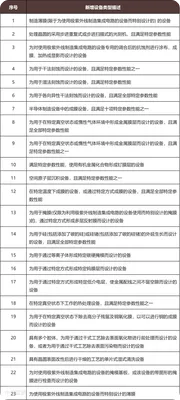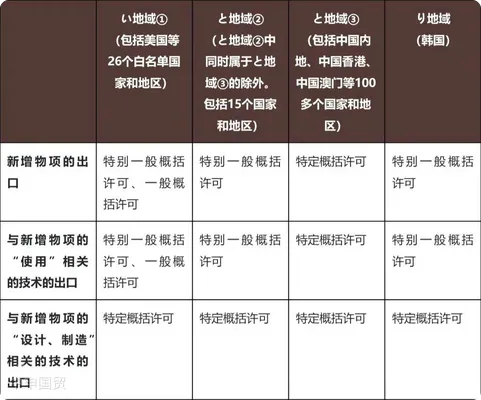- Shanghai Zhongshen International Trade Co., Ltd. - Two decades of trade agency expertise.
- Service Hotline: 139 1787 2118
On March 31, 2023, Japans Ministry of Economy, Trade and Industry announced a new draft amendment to the Order for Partial Revision of the Ministerial Ordinance Specifying Goods or Technologies under the Export Trade Control Order and the Foreign Exchange Order, proposing to expand the scope of advanced chip manufacturing equipment requiring prior approval from the Minister of Economy, Trade and Industry before export. Public comments were solicited until April 29, 2023.
根據本次新規,日本將擴大受到出口管制的芯片制造設備的范圍,增列了23類半導體制造設備及相關技術。這意味著日本出口商需要獲得經濟產業大臣的事先批準才能出口這些設備和技術。此外,對于出口至包括中國在內的全球其他國家和地區的芯片制造設備出口許可證申請將更為嚴格和復雜,as follows:
Addition of 23 categories of semiconductor manufacturing equipment and corresponding technologies, expanding Japans controlled list. Most of these are for processes below 14nm to 10nm. The new categories include cleaning equipment (3 items), thin-film deposition equipment (11 items), heat treatment equipment (1 item), lithography equipment (4 items), etching equipment (3 items), and testing equipment (1 item).

Exports to China will face a more stringent and complex license application mechanism, including applications for specific general export licenses.
For exports of technologies related to the new items, if they pertain to the use of the new items, the license requirements for mainland China, Hong Kong, or Macau will be far stricter and more complex than those for 42 countries or regions in specific geographic categories. If they pertain to the design or manufacturing of the new items, a specific general export license will uniformly apply to all countries.

The impacts of the new regulation and key follow-up points are as follows:
Impact on Japanese semiconductor equipment exporters: The new regulation expands Japans controlled list, requiring stricter license applications for exports of the 23 categories of equipment and technologies, potentially affecting their export business and profits.
Impact on Chinese semiconductor companies: The stricter license application mechanism means higher export costs and longer wait times for Chinese semiconductor companies, potentially affecting their production and R&D plans.
Impact on the global semiconductor supply chain: As a key player in the global semiconductor supply chain, Japans new regulation may affect supply chain stability. Affected companies will need to reassess their supply chain strategies and consider alternative sources.
In the coming months, the following key points require attention:
Japanese government decisions: Close monitoring of the governments stance and actions in implementing the new regulation. How it interprets, enforces, and resolves issues will significantly impact the semiconductor industry.
China-U.S. relations: As Japan tightens controls on Chinese semiconductor companies, China-U.S. relations may further deteriorate, potentially triggering trade disputes and political conflicts affecting the global semiconductor industry.
Global semiconductor supply chain: Close monitoring of developments in the global supply chain, including adjustments among semiconductor manufacturers partners and suppliers and changes in production capacity, to timely adjust business strategies.
Related Recommendations
? 2025. All Rights Reserved. 滬ICP備2023007705號-2  PSB Record: Shanghai No.31011502009912
PSB Record: Shanghai No.31011502009912










